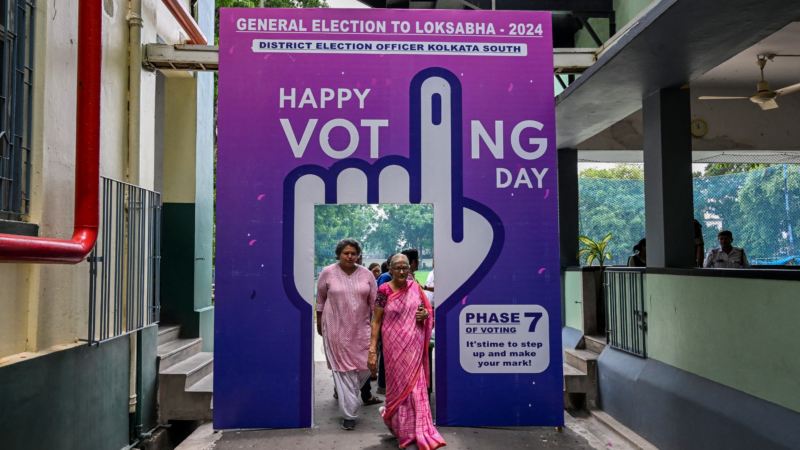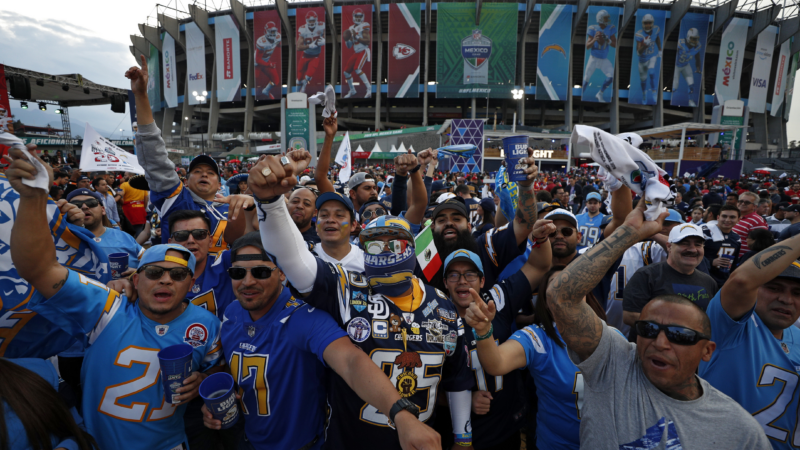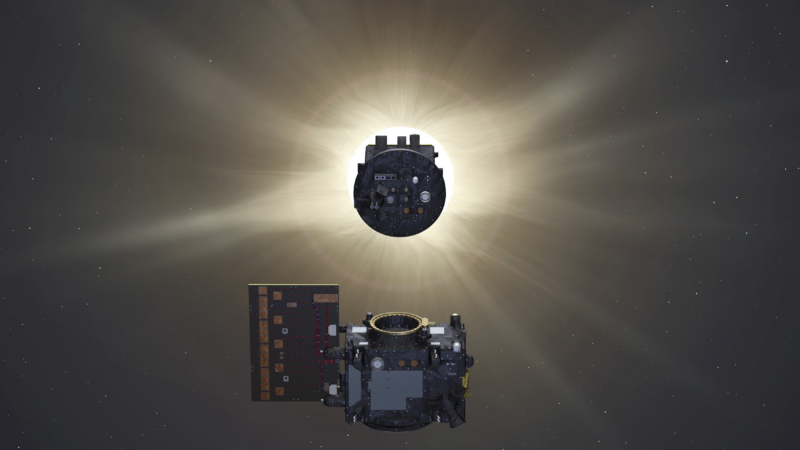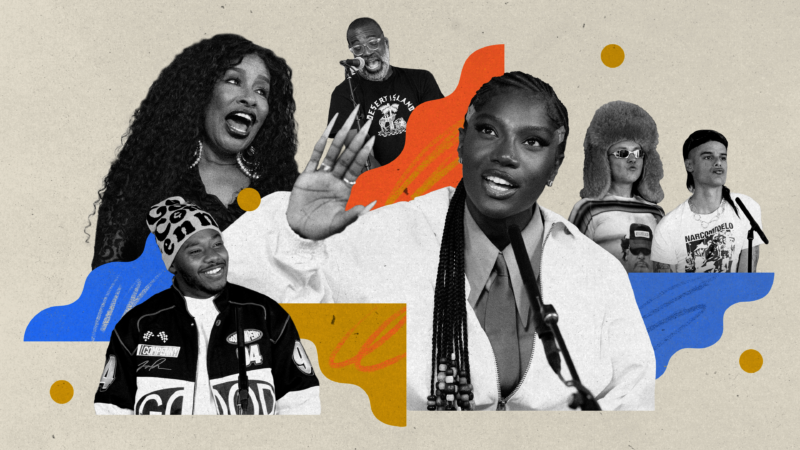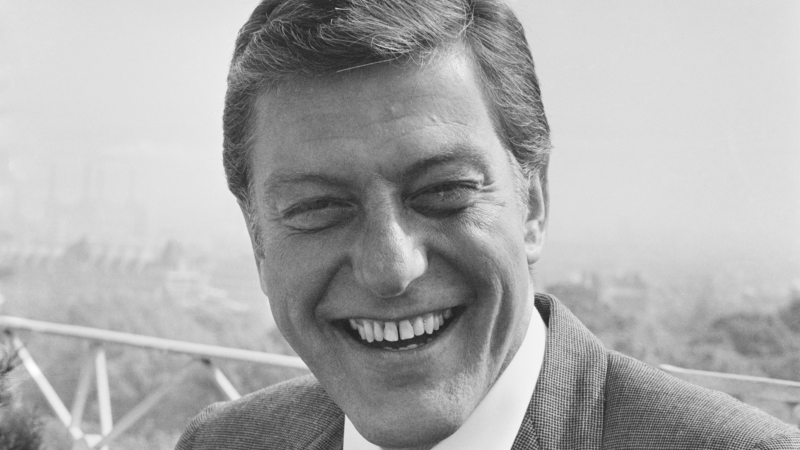How AI deepfakes polluted elections in 2024
In January, thousands of New Hampshire voters picked up their phones to hear what sounded like President Biden telling Democrats not to vote in the state’s primary, just days away.
“We know the value of voting Democratic when our votes count. It’s important you save your vote for the November election,” the voice on the line said.
But it wasn’t Biden. It was a deepfake created with artificial intelligence — and the manifestation of fears that 2024’s global wave of elections would be manipulated with fake pictures, audio and video, due to rapid advances in generative AI technology.
“The nightmare situation was the day before, the day of election, the day after election, some bombshell image, some bombshell video or audio would just set the world on fire,” said Hany Farid, a professor at the University of California at Berkeley who studies manipulated media.
The Biden deepfake turned out to be commissioned by a Democratic political consultant who said he did it to raise alarms about AI. He was fined $6 million by the FCC and indicted on criminal charges in New Hampshire.
But as 2024 rolled on, the feared wave of deceptive, targeted deepfakes didn’t really materialize.
“It wasn’t quite the year of AI elections like many folks foretold,” said Zeve Sanderson, who studies how digital information is changing society at NYU’s Center for Social Media and Politics.
Instead, the most visible use of AI in many countries was to create memes and content whose artificial origins weren’t disguised. Often, they were openly shared by politicians and their supporters.
Farid said going into this year, he was more concerned about this sort of “death by a thousand cuts” than the AI bombshell scenario.
“I don’t think the images were designed to be clearly deceptive, but they were designed to push a narrative, and propaganda works,” he said. “I do think that there was a general polluting of the information ecosystem where people just started to give up.”
Resurrecting a dead dictator
Take Indonesia, where the political party Golkar used AI to reanimate Suharto, the longtime dictator who died in 2008.
“I am Suharto, the second president of Indonesia,” the AI Suharto says before endorsing the party’s candidates, in a video posted to the social media site X by Golkar’s deputy chairman. The fake Suharto says Golkar’s candidates will “continue my dream of Indonesia’s progress.”
Soon after, Suharto’s son-in-law — who also had Golkar’s support — was elected president.
AI memes were also prevalent in India, where the world’s largest democratic exercise took place last spring.
In May, at a bazaar in Jaipur, a trader named Dilip, who only has one name, told NPR his friends forwarded him AI-generated memes on WhatsApp, the popular messaging platform owned by Meta.
He said he liked the ones mocking opposition leader Rahul Gandhi, like one where an AI version of Gandhi was depicted as a stupid thief, imagining all the money he would steal if he won.
Still, Dilip said despite the memes, he’d already made up his mind about who to vote for.
One generative AI artist in India, who goes professionally by the name Sahid SK, said he took on memes because there was less risk of being sued for defamation by angry candidates. He said memes are a wink, not outright misrepresentation.
“I think that’s the only reason we haven’t seen many deepfakes in this election. Because everybody’s afraid of legal notices,” Sahid SK said.
Plenty of false and misleading narratives were spread in India and other countries without using AI at all — instead, through edited and doctored videos known as “cheapfakes.”
Musk and Trump embrace AI-generated memes
In the U.S., political memes and viral videos spanned the spectrum from Photoshopped images and out-of-context clips to AI-generated portraits of Vice President Kamala Harris in Soviet garb and of Black Americans supporting former President Donald Trump.

In July, Elon Musk, the owner of X, shared a fake ad in which an AI clone of Harris’s voice describes herself as “the ultimate diversity hire,” without disclosing the video was originally posted as a parody.
Musk and other Trump supporters frequently shared AI memes mocking Harris and Democrats and boosting the former president.
Trump himself posted a cartoonish AI image purporting to show Taylor Swift endorsing him — which, to be clear, she didn’t.
Sanderson said this use of AI is not meant to change people’s minds, but to “make their preferred candidate look patriotic or noble [or] to make their opposing candidate look evil.” He noted these manipulations could be done with traditional photo and video editing tools, but “generative AI just makes it quite a bit easier.”
Sanderson also cautioned that AI may have been used in ways that are less detectable. “I still don’t think we have a really good, rigorous sense of how generative AI was used at scale, by whom, for what purposes,” he said.
What’s more, it’s hard to draw a direct line from the AI fakes that were identified this year to how people voted, says Farid of UC Berkeley.
“Do I think it changed the outcome of the election? No,” he said. “Do I think it impacted people’s thinking? Yeah, I think it did. And I think it will continue to do that.”
NPR’s Diaa Hadid contributed reporting from Jaipur and Kolkata, India.
Latinos are the fastest-growing fanbase in the NFL. What’s the league’s playbook?
The NFL is reaching more Latinos than ever. Here's how they've scored with a Spanish-speaking audience.
A pair of satellites will create artificial solar eclipses to study the sun
Astronomers hope the Proba-3 mission will help them get a better view of the corona, the sun's outer atmosphere, which is even hotter than the sun's surface.
How casting makes this ‘Gypsy’ hit different
Gypsy has been called the best musical of all time. Audra McDonald is starring in a new Broadway revival, and the race-conscious casting gives the production a new frame.
The 10 Best Tiny Desk Concerts of 2024
We asked 10 members of our Tiny Desk team to pick a favorite concert of the year.
‘Driven by something greater’: Meet Birmingham’s trainer to the stars of today and the future
Otis Leverette, better known as ‘Coach O,’ is a strength and conditioning coach in the South that’s impacting athletes' lives beyond sports.
What’s Making Us Happy: A guide to your weekend scrolling, listening and viewing
Each week, guests and hosts on NPR's Pop Culture Happy Hour share what's bringing them joy. This week: JamesEarl333 on TikTok, The Dick Van Dyke Show and the songs "Young Lion" and "Kid on Christmas."
